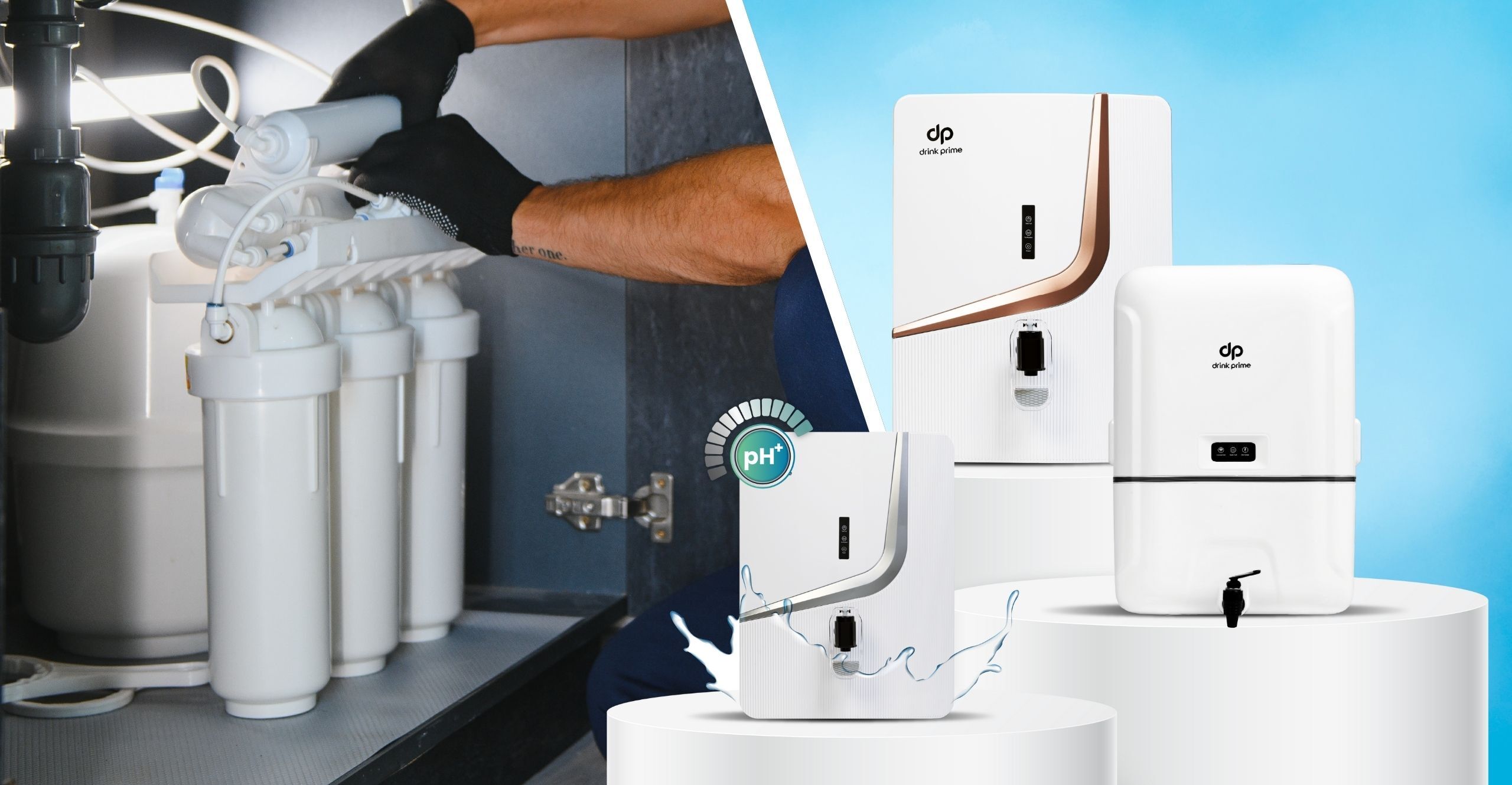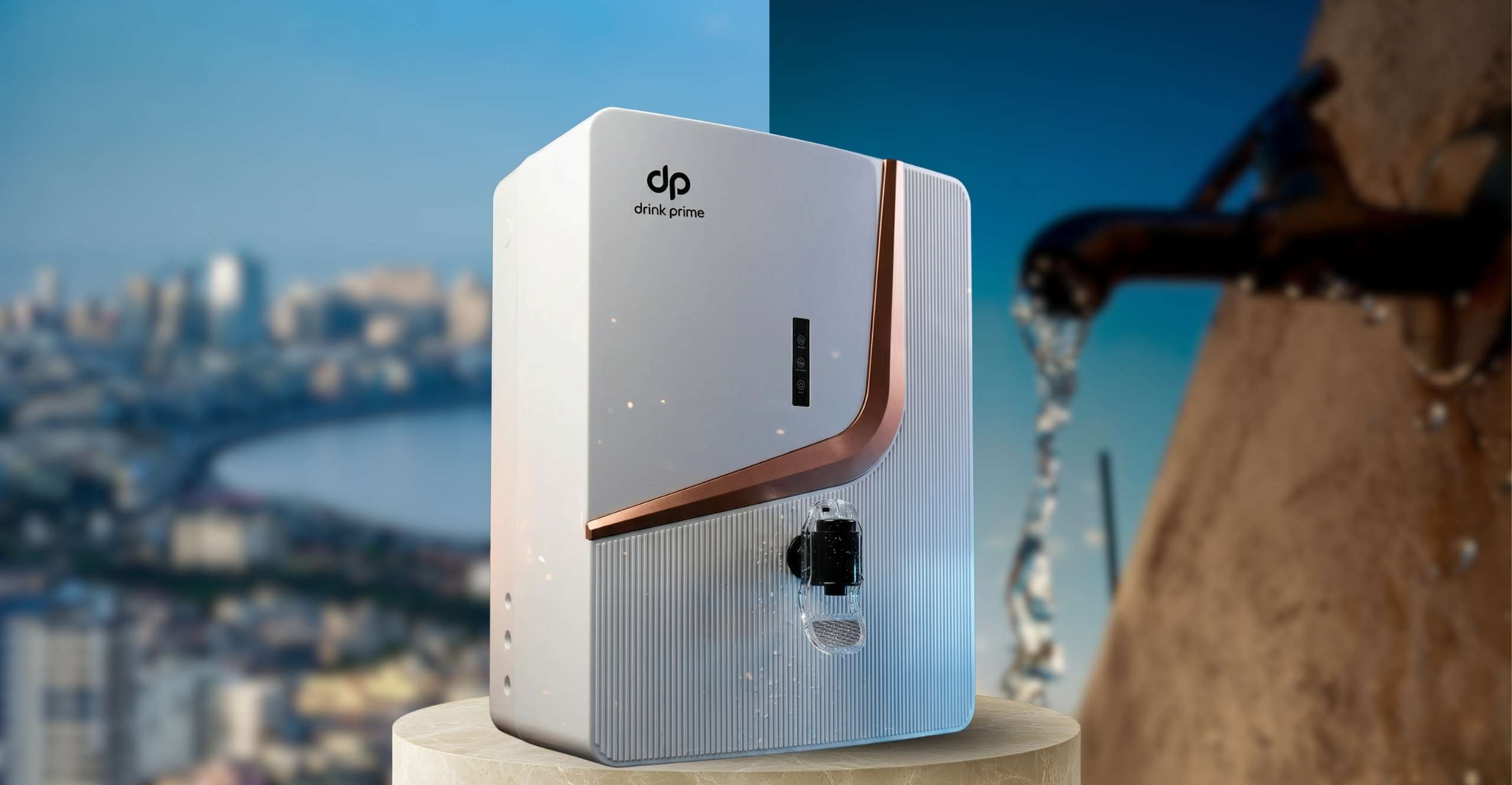An alkaline water purifier has become a necessity in many households, especially in urban areas with deteriorating water quality. However, with a plethora of options available, choosing the right one can be overwhelming.
As we enter 2025, buyers must focus on essential factors like price, features, and benefits. This guide covers what you need to know before purchasing an alkaline water purifier for home use.
Understanding the Benefits of Alkaline Water
Alkaline water purifiers filter contaminants and enhance water by raising its pH level. The result? Water that’s rich in essential minerals and less acidic. These benefits can improve hydration, and digestion, and even boost immunity.
Key alkaline water purifier benefits include:
- Improved Digestion: Alkaline water can help neutralise stomach acid and aid digestion.
- Enhanced Hydration: It can improve the body’s ability to absorb water.
- Reduced Acid Reflux: Alkaline water may help alleviate symptoms of acid reflux.
- Antioxidant Properties: Some studies suggest that alkaline water may have antioxidant properties. (Source: WIT Press)
Key Factors to Consider Before Buying an Alkaline Water Purifier
As more people become conscious of the potential health benefits of drinking alkaline water, the market for alkaline water purifiers continues to grow. Alkaline water is often marketed as offering benefits such as improved hydration, antioxidant properties, and better acidity control.
However, before investing in an alkaline water purifier, there are several factors to consider in 2025 to make an informed decision that aligns with your health and budget.
Understanding pH levels and their safety
Before purchasing an alkaline water purifier for home, it’s crucial to understand the role of pH levels in drinking water. Normal tap water typically has a neutral pH of 7, but alkaline water has a higher pH level, typically ranging between 8 and 9.
The idea behind alkaline water is that it can help neutralise acidity in the body, promoting better hydration and overall health.
However, while a higher pH is often associated with positive health effects, the pH of the water should not be too high, as this can have adverse effects. Water with a pH greater than 9.5 may lead to issues like skin irritation, digestive upset, and an imbalance in the body’s natural acidity.
The general guideline for safe drinking water is a pH between 7 and 8.5, which is considered optimal for hydration and health benefits.
Ionisation vs. alkaline filters: Which method to choose?
There are two primary methods for making water alkaline:
- Ionisation: This process uses electrical currents to change the charge of water molecules, altering the pH without adding any minerals. Ionisers are often more expensive and require power to operate, but they can provide consistent pH levels and high-quality alkaline water.
- Alkaline filters: These filters work by adding minerals like calcium, magnesium, and potassium to water, which increases the water’s pH. Alkaline filters are generally more affordable and easier to maintain, making them a popular option for those looking for a cost-effective way to enjoy alkaline water.
Both methods are effective, but ionisers tend to be more expensive and complex, whereas alkaline filters are more user-friendly and require less maintenance.
Consider your water source’s pH
If you currently use an RO purifier, it is important to note that this method reduces the pH of the water, making it more acidic. Alkaline water purifiers can counteract this by adding minerals to increase the pH level of the output.
For instance, DrinkPrime alkaline water purifiers can raise the pH of RO water by up to 2 points. This means that if your RO output has a pH of 6.5 (which is slightly acidic), the DrinkPrime purifier can raise the pH to between 8 and 8.5, bringing it closer to the ideal alkaline range.
When choosing an alkaline water purifier, consider the pH level of your existing water and how much you need it to be adjusted. This can help you decide between ionising purifier or filter-based model.
Alkaline water purifier price considerations and maintenance costs
Alkaline water purifiers tend to be more expensive than traditional RO water purifiers. Ionisers, in particular, can come with a hefty price tag, and they also require regular maintenance and occasional filter or electrode replacements.
One advantage of certain alkaline water purifiers, like those from DrinkPrime, is that we offer maintenance-free options with free filter replacements, making us a cost-effective option in the long run.
When evaluating the alkaline water purifier price, balance your budget with the features that matter most to your family’s needs. Consider both the initial cost and ongoing maintenance expenses, such as filter replacements, energy usage, and water waste (especially in ionizers).
Alkaline Water Purifier Benefits: Beyond Drinking
An alkaline water purifier doesn’t just improve drinking water; it has several other uses:
- Cooking: Enhances the taste of food and helps retain nutrients.
- Skin Care: Alkaline water can be used to cleanse the skin, reducing dryness and irritation.
- Plant Care: Watering plants with slightly alkaline water can improve soil health.
DrinkPrime: Your Partner in Pure Water
DrinkPrime offers a range of advanced alkaline water purifiers designed to meet the diverse needs of Indian households. Our products are equipped with cutting-edge technology to deliver pure, clean, and alkaline water.
By considering these factors and choosing a reliable brand like DrinkPrime, you can ensure that your family has access to clean and healthy drinking water.
Get 7 Days Risk Free Trial
Conclusion
Investing in an alkaline water purifier in 2025 is a smart choice for families seeking better hydration and health. By considering factors like water quality, technology, price, and maintenance, you can select the right purifier for your home.
Beyond drinking, alkaline water offers numerous health benefits, making it a valuable addition to your daily routine. Prioritise clean, healthy water—it invests in your family’s well-being.




